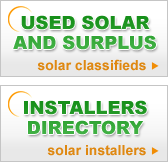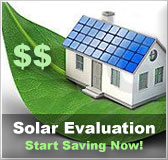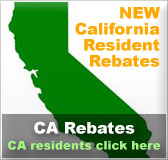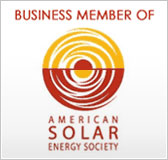Solar choice program – Austin Public Utilities:
-This program was designed to encourage customers of Austin Public
Utilities to install solar PV systems and connect them to the utility.
-Customers who participate in this program will connect their PV systems
to the utility’s distribution system and will be compensated
for all electricity their system produces.
-The incentive amount varies depending upon how much electricity is
produced. Maximum amount of compensation is $1.00 per kilowatt-hour.
-Eligible systems must have a capacity limit of 40 kWh.
Wind and solar electric systems exemption:
-The total value added to a home by a solar electric or wind system
is exempt from real property taxes.
-Wind systems with a greater capacity then 250 kW do not qualify for
this exemption.
Solar energy sales tax exemption:
-Solar systems such as solar water heat, solar space heat and photovoltaics
are 100% exempt from state sales tax.
-The “Certificate of Exemption” Form ST3 from the Minnesota
Department of Revenue must be completed to claim this exemption.
Minnesota energy loan program - Neighborhood energy connection
-Minnesota residents who wish to make energy efficiency and renewable
energy improvements on their property are offered secured, low interest
loans through this program.
-Loan amounts range from $2,000 to $35,000 and have an interest rate
of 6.25%.
-Homeowners must schedule an energy audit through NEC (Neighborhood
Energy Connection) to be eligible.
Solar hot water rebate program:
-This program offers rebates from the Minnesota Office of Energy
Security to Minnesota residents who have solar water heaters installed
on their property.
-Rebates are generally set at $30 per square foot of net aperture
of a new system.
-Rebates are also given to help with system repairs. No rebate will
be issued if the system needs repairs due to lack of maintenance or
if the system had previously received a rebate from this program.
-Rebates for system repairs range from $1,000 (single family) to $3,000
(multi-family 4+ units).
Solar-electric (PV) rebate program:
-This rebate program funded in part by Xcel Energy and is administered
by the Minnesota Office of Energy Security offers state residents
who install solar PV systems a rebate to buy down the upfront cost
of the system.
-Rebate amounts are set at $1.75 per watt DC if the system is installed
by a licensed electrical contractor and $2.00 per watt DC if the system
is installed by a NABCEP certified installer.
-Residential systems are available for this incentive up to 5 kilowatts
of capacity.
Renewable development fund grants:
-This grant is available through the Xcel Energy Development Fund
for renewable energy development projects.
-Eligible technologies include solar electric, biomass, hydroelectric,
renewable fuels and photovoltaics.
-Grant amounts vary.
Utility loan and rebate programs:
-Many utility loan and rebate programs are available throughout the
state of Minnesota provided by municipal cities and utility companies
to help encourage home owners to make energy efficiency improvements.
-Details and requirements for each program will vary.
-Loan and rebate programs are available for customers who install
renewable energy systems and purchase energy efficient appliances.
Net metering:
-Customers participating in net metering in Minnesota are compensated
by the utility for all the net excess generation their renewable energy
systems produce for the utility at the average retail utility rate.
-The compensation is issued as a check to the customer rather than
a monthly credit.
-System capacity must be 40 kW or less to qualify.
Residential renewable energy tax credit:
-This personal tax credit allows the taxpayer to claim a credit of
30% of expenditures including labor costs and installation of qualified
residential solar-electric systems, solar water heating systems or
fuel cells. Small wind-energy systems and geothermal heat pumps can
also be accredited for.
-Solar-electric systems and solar water heaters have a maximum incentive
of $2,000 if placed in service before 2009. There is no maximum incentive
for systems placed after 2008.
-The excess amount of the federal tax credit may be carried forward
to the next taxable year if it exceeds tax liability.
-This can be carried forward until 2016, but after that, it is unknown
if the unused credit will be able to be forwarded.
Residential energy conservation subsidy exclusion:
-This is a personal exemption of 100% of energy conservation subsidies
provided by public utilities.
-The value of a purchase or installation of any energy conservation
measure by a customer such as solar water heat, solar space heat or
photovoltaics will not be included in the customer’s gross income.
-Customers of an electric utility company, who participate in the
utility’s energy conservation program, may receive a rate reduction
of electricity furnished or a nonrefundable credit against the purchase
price of the electricity on each monthly electric bill.
Energy-efficient mortgages:
-This is a federal loan program where homeowners can use EEM (energy-efficient
mortgages) to finance renewable energy technologies in a home.









